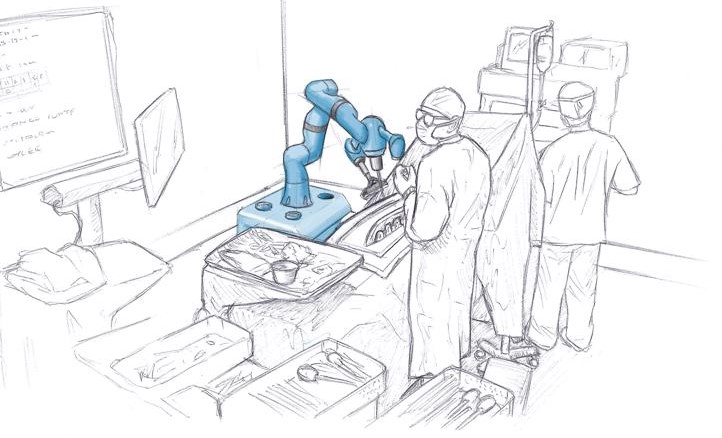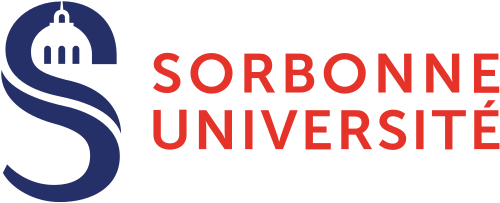DEVELOPING THE NEXT GENERATION
Surgeons make optimal use of all their senses to master difficult operations. When visibility is poor, they locate anatomy by palpation or they hear the optimal moment to stop drilling. Who would, today, entrust the own body to a surgeon that uses only direct vision, neglecting all the other information? Yet this is what the most advanced, semi-autonomous surgical robots of today focus on.Similar to autopilots, the current robots follow a pre-defined path solely based on medical image data. But when things get difficult, they lack non-visual sensing capabilities and the human expert has to take over.
An international collaboration now aims the development of surgical robots that access a broad range of sensing capabilities to master complex surgical tasks autonomously. To this end these robots will incorporate senses comparable or even superior to humans. The robots learn to sense through the tissue, they feel, listen, interpret and act. Overall, the ambition is to provide superior «functional» accuracy. The «FAROS» research project brings together the best experts in their field: Balgrist University Hospital in Switzerland, KU Leuven in Belgium, Sorbonne University in France and King’s College London in England. «FAROS» is supported by Horizon 2020 ICT.
Surgeons rely on their experience and on their senses to master difficult surgeries. That is why, they are far superior to any surgical robot until today. The «FAROS» project heralds a turnaround in conventional robotics: The robots navigation systems will be equipped with widefield mapping, auditory and haptic sensors. Surgeon-like autonomous behavior with physical and cognitive intelligence will be enabled. The international research project foresees the following key elements: non-visual sensors that form a multifaceted representation of the surgical task; functional models that relate signals to functional parameters and controllers, that produce sensible autonomous robot actions optimizing functional performance.
This new concept, which we refer to as Functionally Accurate RObotic Surgery (FAROS), will be showcased and validated on complex spine surgeries. Emmanuel Vander Poorten, who leads the consortium explains: «Expert surgeons rigorously assess each situation and are able to determine an adequate and optimal surgical gesture on the spot. Oftentimes this happens as an automatism». Furthermore: «It is this physical intelligence that FAROS aims to grasp and embed in the next generation of surgical robots. With FAROS, we will push to the limit as we draw from a wide range of sensors and learn from all past experiences to optimize functional outcome and ultimately patient’s health».
More about FAROS:
«FAROS» a consortium of four universities: KU Leuven in Belgium, which is coordinating the project and driving the work in non-visual sensing, Sorbonne University in France, with a strong role in robotics via the ISIR laboratory (the Institute for Intelligent Systems and Robotics), King’s College London in England, which will lead the development of artificial intelligence, and Balgrist University Hospital, which will work interdisciplinary to bridge robotics, computer science and clinical research. This project has received funding from the European Union’s Horizon 2020 research and innovation programme under grant agreement No 101016985. «FAROS» will start with a three-year term on January 1, 2021. Horizon 2020 is the largest EU research and innovation program with almost €80B in funding and a term of 7 years.
FAROS website: https://h2020faros.eu/
The project’s press release: https://www.sorbonne-universite.fr/presse/la-robotique-chirurgicale-qui-scanne-entend-sent-et-agit
Referral contacts:
- Guillaume Morel, Professor of robotics and control at the ISIR, guillaume.morel@sorbonne-universite.fr
- Claire de Thoisy-Méchin, Sorbonne University press service, claire.de_thoisy-mechin@sorbonne-universite.fr
- Marion Valzy, Sorbonne University press service, marion.valzy@sorbonne-universite.fr



